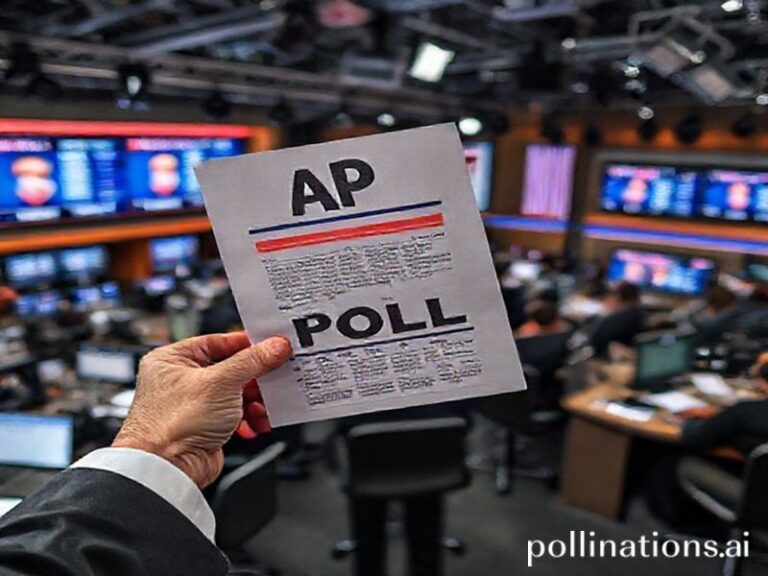Yamamoto: The Global Surname That Owns Your Stock Portfolio and Your Nightmares
Yamamoto: The Name That Travels Faster Than a Diplomatic Passport
By Our Correspondent with a Luggage Tag Full of Regret
There are only two things you can’t escape in this world: taxes and the surname Yamamoto. From the neon canyons of Tokyo to the fluorescent purgatory of a Frankfurt business lounge, the name keeps popping up like an unsolicited push notification. A Yamamoto just won a Michelin star in Copenhagen; another is on trial in Buenos Aires for smuggling crypto-miners in diplomatic pouches; a third is currently orbiting Earth tweeting haikus about orbital loneliness. Statistically, one in every 250 Japanese citizens answers to the name, which makes it the global equivalent of “Smith,” only with better suits and a darker sense of irony.
The global fascination isn’t just a census curiosity—it’s a geopolitical mood ring. When the Bank of Japan’s Deputy Governor Yamamoto hints at negative interest rates, the Australian dollar convulses like a teenager hearing the word “curfew.” When fashion deity Yohji Yamamoto drops another collection of asymmetrical black garments, Parisian buyers elbow one another with the desperation of UN delegates scrambling for the last canapé. And when Admiral Isoroku Yamamoto’s wartime diary surfaced last year in a Manila junk shop, it triggered a bidding war that ended with the Japanese government trading a batch of surplus bullet trains to a private collector from Luxembourg. Somewhere, humanity’s moral compass is spinning so fast it’s generating its own weather system.
International capital has learned to treat “Yamamoto” as a diversified portfolio unto itself. Silicon Valley VCs keep a spreadsheet titled “Yamamoto Orphans,” start-ups founded by stray Yamamotos who washed up on California shores with nothing but a GitHub account and a bulletproof sense of entitlement. Last quarter, three different Yamamoto-led firms promised to revolutionize supply-chain logistics using NFTs, artisanal seaweed, and—my personal favorite—blockchain-verified sincerity. Two have already collapsed; the third pivoted to selling meditation apps to burnt-out crypto bros. The market shrugged, because by now failure is just another tradable commodity.
Meanwhile, the European Union’s new AI ethics guidelines quietly cite “Project Yamamoto,” an algorithm trained to detect when multinational corporations are about to weaponize nostalgia. The software was ironically funded by a consortium chaired by—wait for it—Dr. Kenjiro Yamamoto, a philosopher of technology whose TED Talk on digital Buddhism went viral after he accidentally left his webcam filter on “sepulchral.” The EU insists the name is a coincidence. Brussels has clearly never tried to book a restaurant in Kyoto during cherry-blossom season.
Down in the global south, Yamamoto has become shorthand for “quietly efficient and mildly ominous.” Brazilian favela kids use “Yamamoto” as slang for any drone that might be DEA, Amazon Prime, or a rogue weather balloon from some hedge fund’s private navy. In Lagos, a bootleg T-shirt reads “YAMAMOTO IS WATCHING,” featuring a pixelated cat wearing aviators. No one knows what it means, but it sells better than electricity.
Of course, the name also carries the weight of historical ghosts. Every August, op-eds re-litigate whether Admiral Yamamoto’s ambivalence about Pearl Harbor makes him the 20th century’s most relatable war criminal—patriotism mixed with the sinking realization that your bosses are idiots. It’s the kind of existential cocktail most of us drink every Monday morning, minus the torpedoes.
So what does it mean when a single surname can simultaneously denote avant-garde fashion, quantitative easing, orbital poetry, and possible drone surveillance? Perhaps that identity has become the last truly liquid asset, tradeable 24/7 on the sleepless bourse of global attention. Or maybe it’s simpler: in a world addicted to branding, Yamamoto is the ultimate four-syllable Rorschach test. We project onto it our hopes, our fears, and our credit-card limits, then hit “purchase” before the exchange rate changes.
In the departure lounge, I queue behind yet another Yamamoto—boarding pass to Dubai, Rimowa carry-on, face mask embroidered with tiny koi fish. He’s humming “Fly Me to the Moon,” off-key but confident. Destination unknown, significance guaranteed. I check my phone: three new Yamamoto alerts—one IPO, one typhoon, one discount code for minimalist streetwear. I silence them all. Some things are best left to mystery, or at least to the next layover.







